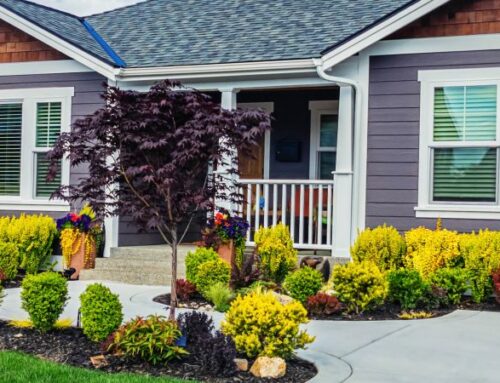You’re moving away from your current home and you’re not sure whether you should sell your current home or hang onto the property as a rental. There are pros and cons to both approaches. If you hold onto your Nevada County home, you can enjoy residual rental income as well as any positive home value appreciation. You’ll also have the peace-of-mind that comes with knowing that you could move back, if circumstances allow. If you sell your home, you may have cash from the sale that can help you purchase another home in your new location. You also won’t need to worry about renting and maintaining your former home. It’s a tough decision and there’s no “right” or “wrong” answer. But don’t worry, we’ve come up with six critical questions you should ask yourself when you’re trying to decide whether to rent or sell your current home.
1. What Are the Current Market Conditions?
The National Association of Realtors (NAR) publishes national, regional and metro-market-level statistics about real estate forecasts. If your home is located in a major metropolitan area that’s covered by NAR data, you can view their current forecasts about your housing market conditions. But remember, real estate trends are hyper-local, which means the data that applies to your overall state or metropolitan area may not necessarily apply to your neighborhood. For specific local information, talk to a real estate agent who specializes in your location (like any of Coldwell Banker Grass Roots Realty’s agents). Ask a real estate agent to conduct a comparative market analysis look at both the recent sales and recent rental history of your neighborhood. You can also check out home pricing reports to compare the value of homes in your area. Again, it’s important to talk to an agent who has experience with your specific neighborhood because the market trends may vary in different areas.
2. What is the Long-Term Outlook for the Neighborhood?
Ask your agent if there are indicators that your neighborhood may have a positive outlook for the next several years. If home prices are slated to rise, it could be beneficial to hold on to the property and allow time for appreciation. If you’re holding onto your former home, then you may want to rent it out so that you can cover mortgage, repair and maintenance costs during your holding period. If, however, values are on a decline, selling your home may be a better option for you. Of course, nobody can predict the future. But looking at indicators like job growth, population growth and housing inventory can lead to a smarter decision.
3. Will You Have Trouble Finding a Buyer or Renter?
Every local housing market caters to different sets of people. If you want to be able to find a tenant or buyer, you need to understand who your housing market attracts. If your neighborhood tends to attract first-time homebuyers, and you live in a high-priced luxury home, it’s possible that you may have better luck finding a renter. On the other hand, if your residence is a duplex and your neighborhood is popular with investors, you may have excellent luck selling your property. Likewise, take a look at how popular your neighborhood is with renters. Ask a real estate agent to pull data about the percentage of homes in your area that are owner-occupied vs. renter-occupied. In addition, ask the agent to tell you the average length of time that homes sit on the market before selling. This will give you an indication of the demand in your neighborhood.
4. What Are Your Monthly Holding Expenses?
Estimate the monthly rental income for your property. Subtract an estimate for expected vacancy rates as well as an estimate for property management fees. This is the gross revenue you can expect to collect from the property. Vacancy rates vary depending on neighborhood. Talk to an agent to find the average vacancy rates in your area. You can also call a few property managers who service your area to inquire about rates. Expect to hear estimates around 10% of the gross rent monthly, plus one months’ rent as a placement fee for new residents. Next, calculate your total monthly expenses for the property, including the mortgage payment (principal, interest, taxes and insurance), condo or homeowner’s association (HOA) fees if applicable, and an estimate for annual repair and maintenance costs. These are your holding costs for the property. Not sure how to estimate these costs? As a broad rule-of-thumb, repairs and maintenance will cost about 1% of the property value, or $83 per month for every $100,000 worth of home. This is a long-term average that includes major capital expenditures like replacing the HVAC, water heater and roof. Subtract your holding costs from your gross revenue (after deducting for vacancy and management). How much is left over? This monthly total will play a big role in your decision to either rent or sell.
5. Do You Have an Emergency Fund?
You’ll need adequate funds to prepare for vacancies and major capital expenditures. Do you have an emergency fund to cover the mortgage payment for those months when the property may not be occupied? Can your cash reserves cover the cost of a major emergency repair, like a broken water heater? If you don’t have the money to make your payments on time, then your credit score will suffer, and eventually, you could even face foreclosure. Make sure you have sufficient cash reserves before you start renting out your property.
6. Can You Buy Another Home Without Recouping the Down Payment?
Can you buy another home without selling your existing home? Or do you need to sell your current home in order to recoup the equity, so that you can make a down payment on your next home? If any offer that you make on a future home will be contingent on the sale of your current home, then you may want to think about listing your existing home for sale. On the other hand, if you can hold onto your current home and also buy another one, and the rental income on your current home – even after vacancies, repairs, maintenance and management – exceeds the holding costs, then there might be an argument for using your current home as a rental.
Whether you should rent or sell your current home is a difficult question to answer. The answer will vary from person to person. But if you carefully examine the specifics of your neighborhood, home prices, rental demand, cash reserves, and financial abilities, you’ll be able to come up with a smart decision.
Looking to buy or sell in the Nevada County area? Give a Coldwell Banker agent a call today!





